| My good friend Lesley Roessing wanted to celebrate some book recommendations for her birthday as well. So now we have 20 for the 20th. Here are some fantastic choices. While Lesley's words are the best, I added a link to the Kirkus review as well. For more about Lesley, browse through the contributor's page for more of her brillant work. She is also the author of Talking Texts: A Teachers’ Guide to Book Clubs across the Curriculum (Rowman & Littlefield, 2019) If the title of Lesley's pick is in green it is Bickmore read and Bickmore approved. |
20 +1-to-Grow-On Recommendations for my July 20th Birthday
Lesley Roessing
Reynolds, Jason and Kiely, Brendan. All American Boys. YA Kirkus Review
| Told in alternating chapters and viewpoints by Rashad, a black ROTC student unjustly put in the hospial by a White policeman, and Quinn, a white student who witnessed the attack and has to rethink his ideas of racism. Made me think and I appreciated the two viewpoints. • police brutality, racism, social justice, bystander to upstander |
Jackson, Tiffany. Allegedly. YA Kirkus Review
| A white baby killed while under the care of a church-going black woman and her 9-year-old daughter Mary. The novel takes place 6 years later, when Mary has survived baby jail for “allegedly” killing the baby and is living in a group home, pregnant and in a relationship. Consider this one of the best-crafted novels I have read with narration interrupted by reports, articles, and interviews—from the past and then from the present. • need for connection and for parent love, juvenile justice system, having a voice |
Crowder, Melanie. Audacity. YA Kirkus Review
| The story of Clara Lemlich, a Russian Jewish immigrant who sacrifices her education to fight for the rights of factory workers on Manhattan's Lower East Side in the early 1900’s. I learned about the struggles which led up to the Triangle Factory fire. • verse novel, U.S. history, unions, refugees, intolerance |
Grimes, Nikki. Between the Lines. YA Kirkus Review
| High-school student Darrian joins Mr. Ward’s class where he learns about his classmates as they learn about each other and about themselves through their poetry narratives on Open Mic Fridays and their collaborations for a girls vs boys Poetry Slam. I was awed how the author had to create poetry in the voices of the different characters. • incarcerated parents, foster families, immigration, alcoholic parents, self-esteem, poetry |
Quick, Matthew. Boy 21. YA Kirkus Review
| Finley lives in a town run by the Irish mob; his mother is dead, his father broken, and his grandfather dependent on a wheelchair and him. His only way out is basketball but when he is asked to befriend Russ or Boy21, a teen who has suffered the death of his parents and now lives in town and a basketball player who can challenge Finley’s position on the team, he does and their friendship helps both. This is a story with relatable characters and well-paced writing that engages reluctant readers. • friendship, family relationships, surviving loss, and racism |
Messner, Kate. Breakout. MG Kirkus Review
| As students finish school, write letters for the time capsule for the future citizens of Wolf Creek, and plan for Field Day, two prisoners escape, and for the next three weeks the life of the town is “different.” Narrators seventh-grader Nora, her friend Lizzie, new student Elidee Jones, and other town citizens, write in a variety in formats, such as Lizzie’s hilarious parodies of the news. I was amazed and delighted at how the author wrote in the voices of all these difference characters. • race, poetry, finding one’s voice, forgiveness, family, community, prison break |
Levithan, David. Every Day. YA Kirkus Review
| Every day the protagonist, referred to as A, wakes up in a different body and lives that person’s life, attempting most times not to rock the boat so the person can return to the situation they “left.” I found this one of the most thought-provoking and interestingly-crafted novels I have read, not because A falls in love with Rhiannon and now tries to manipulate the daily lives to come in contact with her, but because A is truly the most diverse character ever. • identity, race, gender, drug dependency, relationships |
Benway, Robin. Far from the Tree. YA Kirkus Review
| Grace, Maya, and Joaquin were given up by their mother. When they find each other as teens, Joaquin has spent most of his life in the foster system, Maya was adopted by a family where she doesn’t fit, and Grace was also adopted and is now a pregnant teen struggling with the decision to ut her own child up for adoption. As they look for their biological mother, they become a family and find their missing parts. Winner of the 2017 National Book Award for Young People’s Literature. • identity, family, loss |
Dean, Carolee. Forget Me Not. YA Kirkus Review
| Ally is shamed and cyber bullied after compromising photos of her are texted throughout her high school. She thinks she has committed suicide but might she have a second chance as a friend shows her the value of her life. What I loved most was the creative use a variety of poetic forms (villanelle, pantoum, cinquain, tanka, shape poems) and script writing to identify the characters and vary the mood of the plot so subtly as to not disrupt the reading and the reader. The storyline will provoke important conversations about cyberbullying, shaming, and suicide. • bullying, shaming, suicide, friendship, resilience, poetry |
Rhoads, Jewell Parker. Ghost Boys. MG Kirkus Review
| Jerome, a black 12-year-old, was playing with a toy gun when a white policeman in a car shot him in the back. He now roams the world as a ghost and meets the ghosts of other boys killed by violence, such as Emmett Till, and learns their stories. Ghost Boys will generate important conversations that need to be held about prejudice, discrimination, stereotyping, fear, and the historical span of racism in this country and would group with Dear Martin, All American Boys, and The Hate You Give for social justice book club reading and conversation. • social justice, racism, police brutality, stereotyping, upstanders |
Holt, K.A. House Arrest. MG Kirkus Review
| Twelve year old Timothy steals a wallet to help with his baby brother’s medical expenses; he is arrested and put on house arrest for a year. This novel is the journal he keeps for his probation officer and his court-appointed counselor. This verse novel entices even reluctant readers with the question “What happens when a good kid does a bad thing for a good reason?” leading to powerful classroom discussions. • morality, family, sibling with problems, poverty, justice system, verse novel |
Magoon, Kekla. How It Went Down. YA Kirkus Review
| What everyone can agree on was that Tariq Johnson, a black teen, was fatally shot by Jack Franklin, a white man. But what no one can agree on is how or why, innocence or guilt. Not only the narrative of Tariq Johnson and the shooting, the novel presents the collective stories of his community and those who came in contact with T before and after his death. • justice, perspective, racism, assumption, interpretation, news bias, eye witness unreliability |
Padian, Maria. How to Build A Heart. YA Bustle Review
(already on Steve's "to read" list)
| Izzy, a teen straddled between two cultures—that of her Puerto Rican mother and her North Carolina father—is not quite sure where she belongs. Determined to keep her family’s circumstances a secret from her classmates, Izzy discovers what friendship and trusting friends and family really mean when she finally shares her world with others. • surviving loss, poverty, friendship, family, mental illness, mixed-race families, Habitat for Humanity |
Russo, Meredith. If I Was Your Girl. YA Kirkus Review
| After attempting suicide, Amanda Hardy has transitioned, transferred schools, and moved in with her father to start a new life. But when she shares her secret, she learns that not all “friends” can be trusted, but she also learns that one cannot assume who will/will not be the upstanders and truly strong girls. Readers are introduced to the multitude of challenges, many external, some internal, faced by transgender girls as they re-define who they are. • transgender challenges, friendship, stereotyping, prejudice, loyalty, identity |
Thompson, Holly. Orchards. MG Kirkus Review
| In this powerful verse novel, Kana Goldberg feels guilty when Ruth, a classmate, commits suicide, reflecting on the social hierarchy in her eighth grade class which led to Ruth succumbing to the effects of cyberbullying and questioning why she acted as a bystander rather than an upstander. 28% of U.S. students in grades 6–12 experienced bullying; 30% of young people admit to bullying others; and a study in Britain found that at least half of suicides among young people are related to bullying. This novel generates necessary student conversations. • cyberbullying, suicide, bystanders, Japanese culture, bi-cultural character, becoming a leader |
Jacobson, Jennifer Richard. Paper Things. MG Kirkus Review
| Ari and Gage’s mother died four years before. When he turns nineteen, Gage decides that he wants to take care of his 11-year-old sister Ari. They leave their guardian’s house and become homeless. Over the 6 week period, they sleep in a car, a storage unit, a friend’s 1-room apartment, a shelter, and Ari’s grades fall, she smells, and she is too embarrassed to tell her friends why she is not returning their calls. After she returns home, Ari gathers materials for students for a school craft activity, learning from her experiences that everyone might not have what they need to participate. Takes the reader through many of the scenarios that the 1.36 million homeless public school students (2016-17) experience. |
Korman, Goran. Restart. MG Kirkus Review
| Chase Ambrosea, the 8th grade MVP football player and biggest bully in his school, fell off his roof and suffered from a concussion—and amnesia. The new Chase is a nice guy and when he returns to school, his new video-nerd friends are some of the kids he bullied the most. This novel explores the idea of whether people can change and how can they convince family and friends that the change is real. • bullying, amnesia, change, acceptance |
Sones, Sonya. Saving Red. YA Kirkus Review
| Molly meets Red when she is counting her town’s homeless population as her high school service project. She becomes intrigued with Red who suffers from mental illness and is determined to help Red return to her home. Through this growing friendship Molly, who suffers from her own trauma, and Red help each other. Sonya Sones is the author who introduced me to the verse novel format (Stop Pretending: What Happened When My Big Sister Went Crazy, another favorite), and I refer to her as “the master of the line break.” This novel is timely as currently 69% of homeless youth report mental health problems. • homelessness, mental illness, verse novel |
Rainfield, Cheryl. Scars. YA SLJ Review
| At age 15 Kendra begins remembering years of childhood abuse and feels that she is being stalked by her abuser whom she cannot remember. She uses art and cutting as a way to cope but finally finds the strength to face the former abuse, recall her abuser, and save herself and her mother. • abuse, cutting, therapy, resilience |
Erskine, Kathryn. Seeing Red. MG Kirkus Review
| Seeing Red takes the reader back to the 1970’s where 12-year-old Frederick Stewart Porter (Red) learns that in his town discrimination and racism is still alive and that his family was more involved than he knew. Learning his history will be crucial in making things “right.” This novel leads readers to discussions about where do individual rights/wants end and others’ begin? If you burn a cross but don’t mean it to make a statement, does it still make a statement? What if you were just doing what you were told to do? What if your friend who is black happens to be there? What if he is tied up? And beaten? Reading and discussing history through novels encourages our adolescents to, as the author writes, "Discover the past, understand the present, change the future." • racism, family, social justice, 1970’s, community |
Hilton, Marilyn. Full Cicada Moon. MG Kirkus Review
| On my July 20 birthday, we will be celebrating Neil Armstrong's 1969 walk on the moon. Mimi, a gutsy, half-black, half-Japanese 8th grader, plans to follow in his footsteps. But after her family moves to a predominantly white Vermont town, she faces racial prejudice and sexism. When she enters the Shop class, she is told that “Shop is for boys; Home Ec is for girls.” Sensing she needs this education for her future profession, she persists—and is suspended. When Mimi returns to school, her female classmates suspend their judgement of her and join her in a Shop class sit-in. • 1969, prejudice, mixed-race families, prejudice, gender stereotyping, astronauts |
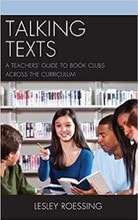




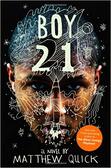
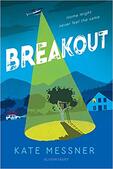
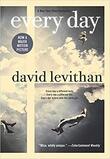
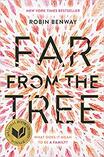
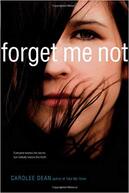
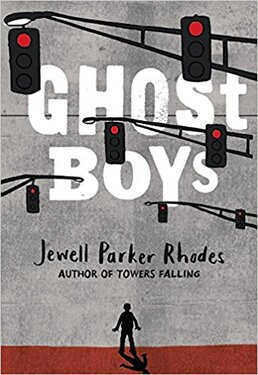
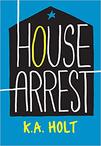
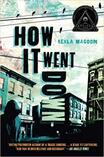
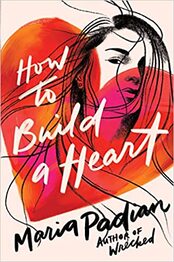

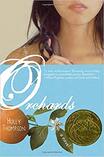
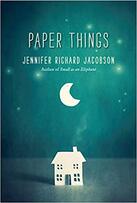

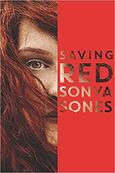

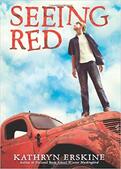
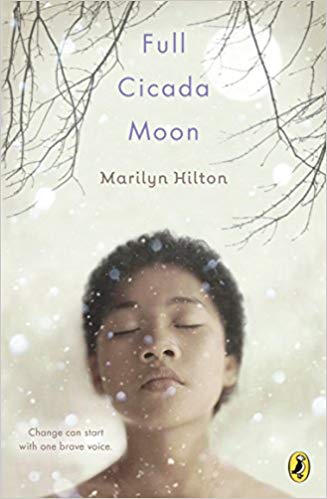

 RSS Feed
RSS Feed